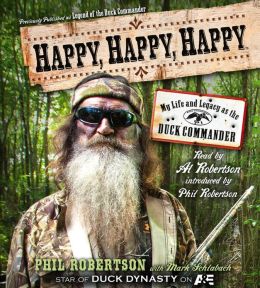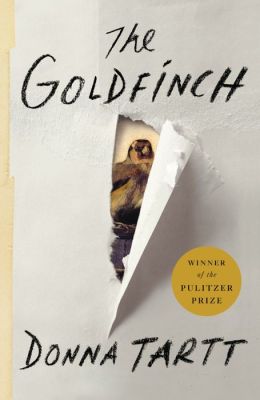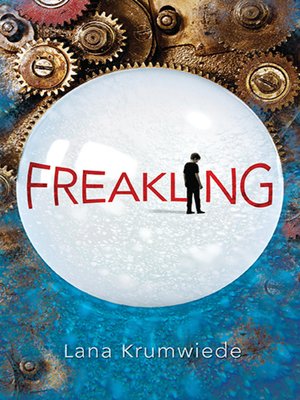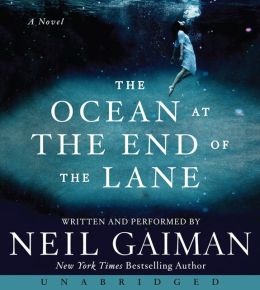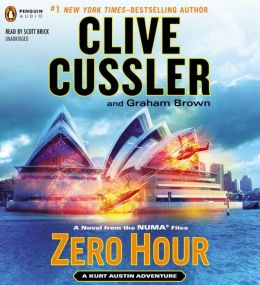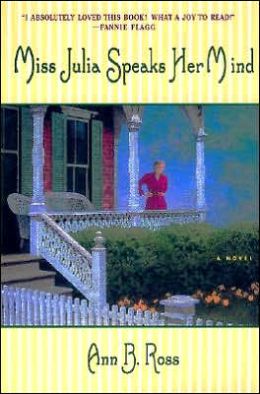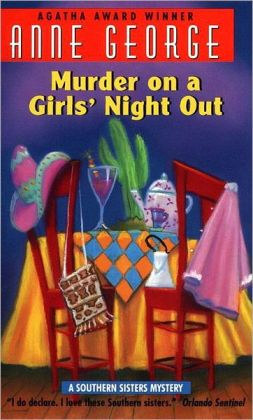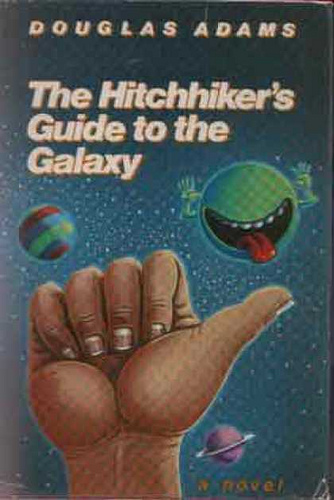In attendance today:
Holley, EOL
Mary Anne, BPL
Samuel, FPW
Michelle, IR
Richard, BPL
Maura, TR
Mondretta, LE
Jon, AV
The next RART meeting will be held on Wednesday, February 11th at 9am at the FIVE POINTS WEST LIBRARY located at 4812 Avenue W, Birmingham, AL 35208, where we’ll be kicking off our year of traveling meetings with a discussion of all things travel writing!
Holley, EOL
Mary Anne, BPL
Samuel, FPW
Michelle, IR
Richard, BPL
Maura, TR
Mondretta, LE
Jon, AV
The next RART meeting will be held on Wednesday, February 11th at 9am at the FIVE POINTS WEST LIBRARY located at 4812 Avenue W, Birmingham, AL 35208, where we’ll be kicking off our year of traveling meetings with a discussion of all things travel writing!
Today was a tossed-salad discussion of book(s) of choice
during the Potluck Food & Books. We
shared delicious snacks, exciting titles, and funny stories!
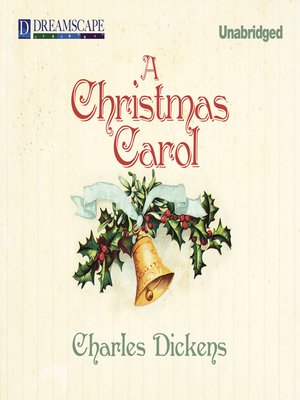
A Christmas Carol by Charles Dickens, narrated by Ralph
Cosham
(Amazon) ""Marley was dead, to begin with..."" And yet, he manages to visit his old partner, the miser Ebenezer Scrooge, and send him on a transformative journey, led by three ghosts. First to his own past, where he sees again the love he spurned, then to the present, where he sees those around him going about their holiday preparations, and then into his own future, to see his just reward. A Christmas favorite, it will warm your heart with favorite memories, and remind you how the true Christmas spirit comes from giving with love.
Michelle, Irondale
(Amazon) ""Marley was dead, to begin with..."" And yet, he manages to visit his old partner, the miser Ebenezer Scrooge, and send him on a transformative journey, led by three ghosts. First to his own past, where he sees again the love he spurned, then to the present, where he sees those around him going about their holiday preparations, and then into his own future, to see his just reward. A Christmas favorite, it will warm your heart with favorite memories, and remind you how the true Christmas spirit comes from giving with love.
Michelle, Irondale

GENERAL DISCUSSION: There is another great audio edition of
Dickens’ A Christmas Carol narrated by Patrick Stewart (sadly, no longer available in the library system), who also stars in a film production of the same.
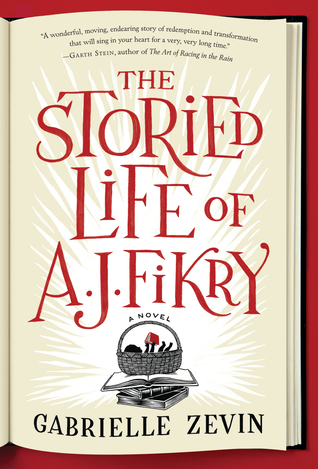
The Storied Life of A.J. Fikry by Gabrielle Zevin
(Powells) A. J. Fikry’s life is not at all what he expected it to be. He lives alone, his bookstore is experiencing the worst sales in its history, and now his prized possession, a rare collection of Poe poems, has been stolen. But when a mysterious package appears at the bookstore, its unexpected arrival gives Fikry the chance to make his life over--and see everything anew.
Michelle, Irondale
(Powells) A. J. Fikry’s life is not at all what he expected it to be. He lives alone, his bookstore is experiencing the worst sales in its history, and now his prized possession, a rare collection of Poe poems, has been stolen. But when a mysterious package appears at the bookstore, its unexpected arrival gives Fikry the chance to make his life over--and see everything anew.
Michelle, Irondale
GENERAL DISCUSSION: Our discussion of Zevin’s book brought
to mind George Eliot’s Silas Marner.
(Powells) Silas Marner, a weaver in early nineteenth-century England, secludes himself to guard his gold and avoid relationships. The gold is one day stolen and replaced with a golden-haired child.
(Powells) Silas Marner, a weaver in early nineteenth-century England, secludes himself to guard his gold and avoid relationships. The gold is one day stolen and replaced with a golden-haired child.

Death Comes to Pemberley by P.D. James
(Powells) In their six years of marriage, Elizabeth and Darcy have forged a peaceful, happy life for their family at Pemberley, Darcy’s impressive estate. Her father is a regular visitor; her sister Jane and her husband, Bingley, live nearby; the marriage prospects for Darcy’s sister, Georgiana, are favorable. And preparations for their annual autumn ball are proceeding apace. But on the eve of the ball, chaos descends. Lydia Wickham, Elizabeth’s disgraced sister who, with her husband, has been barred from the estate, arrives in a hysterical state — shrieking that Wickham has been murdered. Plunged into frightening mystery and a lurid murder trial, the lives of Pemberley’s owners and servants alike may never be the same.
Michelle, Irondale
(Powells) In their six years of marriage, Elizabeth and Darcy have forged a peaceful, happy life for their family at Pemberley, Darcy’s impressive estate. Her father is a regular visitor; her sister Jane and her husband, Bingley, live nearby; the marriage prospects for Darcy’s sister, Georgiana, are favorable. And preparations for their annual autumn ball are proceeding apace. But on the eve of the ball, chaos descends. Lydia Wickham, Elizabeth’s disgraced sister who, with her husband, has been barred from the estate, arrives in a hysterical state — shrieking that Wickham has been murdered. Plunged into frightening mystery and a lurid murder trial, the lives of Pemberley’s owners and servants alike may never be the same.
Michelle, Irondale

GENERAL DISCUSSION: Phyllis Dorothy (PD) James,Baroness James of Holland Park, passed away on November 27, 2014.
What Makes This Book So Great by Jo Walton
As
an avid reader of science fiction and fantasy from an early age, I felt like I
was sitting down for a conversation with an old friend as I read this book. What Makes This Book So Great is a
collection of Walton’s blog entries for Tor publishing as she read and re-read
science fiction and fantasy novels. If you’re already a fan of Walton’s novels
you’ll want to read this book, and if you’ve never read any of her work, this
could go a long way toward making you a fan. Every entry shines with her love
of reading and you may find yourself exclaiming in agreement, or shouting that
no, she’s got it all wrong, or wondering why you’ve never read the book under
discussion and how soon you can get your hands on it. Walton’s blogging has
certainly expanded my reading list.
I
also enjoyed the entries that weren’t so much about specific books as they were
about the experience of reading in general, such as how it feels to fall in
love with a series, living in anticipation of the next novel, and whether a
series that ends badly should (or could) keep her from re-reading and loving
the earlier books. I laughed out loud over the entry on “The Suck Fairy”:
“The Suck
Fairy is an artifact of re-reading. If you read a book for the first time and
it sucks, that’s nothing to do with her. It just sucks. Some books do. The Suck
Fairy comes in when you come back to a book that you liked when you read it
before, and on re-reading – well, it sucks.”
As
I said, I laughed—but we’ve probably all had some experience like this.
Another
fun thing about this book is that you can browse through it and go straight to
a chapter that interests you. I skipped around in it at first, going for
intriguing-sounding chapter titles like “The worst book I love: Robert A.
Heinlein’s Friday”; “The joy of an
unfinished series”; “Licensed to sell weasels and jade earrings: the short
stories of Lord Dunsany”; and “The Weirdest Book in the World.”
So
if you enjoy science fiction and fantasy and you’re not quite sure what to read
next, try What Makes This Book So Great
for an entertaining read that will give you lots of ideas about what to add to
your list. For more of Walton’s commentary on book and reading, visit her blog
at Tor:
Mary Anne, BPL Southern History
.jpg)
Dissolution by C.J. Sansom
If you enjoy historical mysteries and want a
novel that gives you that “just one more chapter” feeling, try Dissolution by C.J. Sansom. The setting
is Tudor England in the late 1530s when
Henry
VIII did away with the monasteries and enriched his treasury with the spoil.
One of these monasteries is on the prospective “hit list” and an officer of the
crown, working for the king’s chief adviser Thomas Cromwell, has been sent to
give the place the once-over and make a report on the monastic treasures—but
when the officer is murdered in the monastery, Cromwell sends Matthew
Shardlake, a lawyer in his service, to investigate the case.
Shardlake
goes into the situation with several strikes against him. Any agent working for
Cromwell would be a target of fear and hatred among those he is called to
investigate, but Shardlake is also a hunchback, which would brand him as evil
in a superstitious age that equated physical disabilities with spiritual shortcomings—twisted
body equals twisted soul. Shardlake does have his share of faults: he is
frequently short-tempered with his subordinates, partly because he is often in
pain from his malformed back. However, he is an appealing character in spite of
his quick tongue and hasty temper. Unlike some investigators, he does not seem
all-powerful and all-seeing, and admits to the mistakes he makes when he is
tired, afraid, and discouraged. As the body count multiplies at the monastery,
Shardlake needs all the courage he can summon to solve the mystery before he
joins the list of victims.
I
thoroughly enjoyed this novel and stayed up much later than usual reading it
because I had to have “just one more chapter.” I’ve already finished the second
novel in the series, Dark Fire, and
enjoyed it as well. I’m looking forward to the next novels and seeing how
Shardlake makes his way in the shifting power balances of Tudor England. If you
liked Hilary Mantel’s Wolf Hall and Bring Up the Bodies, put this series on
your list of Things to Read Next.
Mary Anne, BPL Southern History
GENERAL DISCUSSION: Our discussion of Sansom’s book brought
to mind Umberto Eco’s The Name of the Rose.
(Powells) The year is 1327. Franciscans in a wealthy Italian abbey are suspected of heresy, and Brother William of Baskerville arrives to investigate. When his delicate mission is suddenly overshadowed by seven bizarre deaths, Brother William turns detective. His tools are the logic of Aristotle, the theology of Aquinas, the empirical insights of Roger Bacon — all sharpened to a glistening edge by wry humor and a ferocious curiosity. He collects evidence, deciphers secret symbols and coded manuscripts, and digs into the eerie labyrinth of the abbey, where "the most interesting things happen at night". This book was adapted into a fairly decent film starring Sean Connery.
(Powells) The year is 1327. Franciscans in a wealthy Italian abbey are suspected of heresy, and Brother William of Baskerville arrives to investigate. When his delicate mission is suddenly overshadowed by seven bizarre deaths, Brother William turns detective. His tools are the logic of Aristotle, the theology of Aquinas, the empirical insights of Roger Bacon — all sharpened to a glistening edge by wry humor and a ferocious curiosity. He collects evidence, deciphers secret symbols and coded manuscripts, and digs into the eerie labyrinth of the abbey, where "the most interesting things happen at night". This book was adapted into a fairly decent film starring Sean Connery.

CONTINUED: and also Ellis Peters’ Chronicles of Brother
Cadfael books and the TV adaptation.
(PBS) Cadfael is a Welshman who took up the sword in the First Crusade and fought his way to Jerusalem and back. He has seen and done it all before deciding, at age 40, to devote the rest of his life to God's work. He hopes he might make a start at cleansing the bloody stains off his immortal soul by joining an order of Benedictine monks at the Abbey of St. Peter and Paul. While atoning for his sins, he also becomes England's first master detective.
(PBS) Cadfael is a Welshman who took up the sword in the First Crusade and fought his way to Jerusalem and back. He has seen and done it all before deciding, at age 40, to devote the rest of his life to God's work. He hopes he might make a start at cleansing the bloody stains off his immortal soul by joining an order of Benedictine monks at the Abbey of St. Peter and Paul. While atoning for his sins, he also becomes England's first master detective.

Swamplandia by Karen Russell
(Powells) The Bigtree alligator-wrestling dynasty is in decline, and Swamplandia!, their island home and gator-wrestling theme park, formerly #1 in the region, is swiftly being encroached upon by a fearsome and sophisticated competitor called the World of Darkness. Ava's mother, the park's indomitable headliner, has just died; her sister, Ossie, has fallen in love with a spooky character known as the Dredgeman, who may or may not be an actual ghost; and her brilliant big brother, Kiwi, who dreams of becoming a scholar, has just defected to the World of Darkness in a last-ditch effort to keep their family business from going under. Ava's father, affectionately known as Chief Bigtree, is AWOL; and that leaves Ava, a resourceful but terrified thirteen, to manage ninety-eight gators and the vast, inscrutable landscape of her own grief.
(Powells) The Bigtree alligator-wrestling dynasty is in decline, and Swamplandia!, their island home and gator-wrestling theme park, formerly #1 in the region, is swiftly being encroached upon by a fearsome and sophisticated competitor called the World of Darkness. Ava's mother, the park's indomitable headliner, has just died; her sister, Ossie, has fallen in love with a spooky character known as the Dredgeman, who may or may not be an actual ghost; and her brilliant big brother, Kiwi, who dreams of becoming a scholar, has just defected to the World of Darkness in a last-ditch effort to keep their family business from going under. Ava's father, affectionately known as Chief Bigtree, is AWOL; and that leaves Ava, a resourceful but terrified thirteen, to manage ninety-eight gators and the vast, inscrutable landscape of her own grief.
Against a backdrop of hauntingly fecund plant life animated
by ancient lizards and lawless hungers, Karen Russell has written an utterly
singular novel about a family's struggle to stay afloat in a world that is
inexorably sinking. An arrestingly beautiful and inventive work from a vibrant
new voice in fiction.
Maura, Trussville
Maura, Trussville

All the Light We Cannot See by Anthony Doerr
(Powells) Marie Laure lives with her father in Paris within walking distance of the Museum of Natural History where he works as the master of the locks (there are thousands of locks in the museum). When she is six, she goes blind, and her father builds her a model of their neighborhood, every house, every manhole, so she can memorize it with her fingers and navigate the real streets with her feet and cane. When the Germans occupy Paris, father and daughter flee to Saint-Malo on the Brittany coast, where Marie-Laure’s agoraphobic great uncle lives in a tall, narrow house by the sea wall.
(Powells) Marie Laure lives with her father in Paris within walking distance of the Museum of Natural History where he works as the master of the locks (there are thousands of locks in the museum). When she is six, she goes blind, and her father builds her a model of their neighborhood, every house, every manhole, so she can memorize it with her fingers and navigate the real streets with her feet and cane. When the Germans occupy Paris, father and daughter flee to Saint-Malo on the Brittany coast, where Marie-Laure’s agoraphobic great uncle lives in a tall, narrow house by the sea wall.
In another world in Germany, an orphan boy, Werner, grows up
with his younger sister, Jutta, both enchanted by a crude radio Werner finds.
He becomes a master at building and fixing radios, a talent that wins him a
place at an elite and brutal military academy and, ultimately, makes him a
highly specialized tracker of the Resistance. Werner travels through the heart
of Hitler Youth to the far-flung outskirts of Russia, and finally into
Saint-Malo, where his path converges with Marie-Laure.
Doerr’s gorgeous combination of soaring imagination with
observation is electric. Deftly interweaving the lives of Marie-Laure and
Werner, Doerr illuminates the ways, against all odds, people try to be good to
one another. Ten years in the writing, All the Light We Cannot See is
his most ambitious and dazzling work
Maura, Trussville
Maura, Trussville

A Bunch of Pretty Things I Did Not Buy by Sarah Lazarovic
(Powells) Like most people, Sarah Lazarovic covets beautiful things. But rather than giving in to her impulse to spend and acquire, Sarah spent a year painting the objects she wanted to buy instead. Based on a visual essay that was first published on The Hairpin, A Bunch of Pretty Things I Did Not Buy is a beautiful and witty take on the growing slow-shopping movement. Sarah is a well-known blogger and illustrator, and she writes brilliantly without preaching or guilt-tripping. Whether she’s trying to justify the purchase of yet another particleboard IKEA home furnishing, debating the pros and cons of leg warmers or calculating the per-day usage cost of big-ticket items, Sarah’s poignant musings will resonate with any reader who’s ever been susceptible to an impulse buy.
Maura, Trussville
(Powells) Like most people, Sarah Lazarovic covets beautiful things. But rather than giving in to her impulse to spend and acquire, Sarah spent a year painting the objects she wanted to buy instead. Based on a visual essay that was first published on The Hairpin, A Bunch of Pretty Things I Did Not Buy is a beautiful and witty take on the growing slow-shopping movement. Sarah is a well-known blogger and illustrator, and she writes brilliantly without preaching or guilt-tripping. Whether she’s trying to justify the purchase of yet another particleboard IKEA home furnishing, debating the pros and cons of leg warmers or calculating the per-day usage cost of big-ticket items, Sarah’s poignant musings will resonate with any reader who’s ever been susceptible to an impulse buy.
Maura, Trussville

Far From the Madding Crowd by Thomas Hardy, narrated by
Nathaniel Parker
I listened to this audiobook (12 CDS/13hrs, 35min) for a bookclub I’m in and fully expected to not like it. While it was not an easy read, it IS one that has stuck with me ever since. This book was originally published anonymously in 1874 as a monthly serial and was considered quite scandalous in its day. The main character, Bathsheba Everdene, is one of the most unlikeable creatures I’ve ever met (or read about, what have you), and the various men in the story aren't much better as she leads them a merry chase and they try to outdo one another in shameless ways. I spent a good deal of time angry with the whole cast, but I was never bored. This story resolves so conclusively and in such a satisfying manner, in my humble opinion, that I halfway want to re-read it to see if I missed anything while being annoyed with everyone. The narration is pretty well done, though Parker's voices for the country folk sometimes tended to blend together and were sometimes hard to understand. Remember that episode (Country Retreat) of Keeping Up Appearances when Hyacinth and Richard go out to look at country cottages and she stops to ask directions to Honeysuckle Cottage? It sometimes sounds like that dear old gentleman. Still, Far From the Madding Crowd is a great classic and I'm glad I read it!
Holley, Emmet O’Neal
I listened to this audiobook (12 CDS/13hrs, 35min) for a bookclub I’m in and fully expected to not like it. While it was not an easy read, it IS one that has stuck with me ever since. This book was originally published anonymously in 1874 as a monthly serial and was considered quite scandalous in its day. The main character, Bathsheba Everdene, is one of the most unlikeable creatures I’ve ever met (or read about, what have you), and the various men in the story aren't much better as she leads them a merry chase and they try to outdo one another in shameless ways. I spent a good deal of time angry with the whole cast, but I was never bored. This story resolves so conclusively and in such a satisfying manner, in my humble opinion, that I halfway want to re-read it to see if I missed anything while being annoyed with everyone. The narration is pretty well done, though Parker's voices for the country folk sometimes tended to blend together and were sometimes hard to understand. Remember that episode (Country Retreat) of Keeping Up Appearances when Hyacinth and Richard go out to look at country cottages and she stops to ask directions to Honeysuckle Cottage? It sometimes sounds like that dear old gentleman. Still, Far From the Madding Crowd is a great classic and I'm glad I read it!
Holley, Emmet O’Neal
GENERAL DISCUSSION: A discussion of the peculiarities of
Victorian literature led us a merry chase, culminating with one member sharing
the time-devouring website, bizarrevictoria.

Ghosts: A Natural History: 500 Years of Searching for Proof
by Roger Clarke
This is a first, a history of ghost investigation. It’s
mostly about England and contains an abundance of fascination, creepy and even
hilarious accounts. Clarke is a skeptic and a former investigator, but he knows
when to pull back and tell a thrilling tale. He enjoys presenting stories of
frauds, though, and often these are funny, and sometimes they’re
side-splitting. There is here a uniquely odd assortment of particulars, such as
England’s first ghost hunter, why ghosts have clothes, famous scientists who
researched ghosts, how the EEG was first used to detect telepathy and why
Victorian séances were all about sex. My personal copy has much underlining,
checkmarks and stars so I can easily go back to the good parts.
Richard, BPL Fiction

Family Blessings by Fern Michaels
(Powells) Right before Thanksgiving, a freak tornado drops down into the town of Larkspur in Pennsylvania's Allegheny Mountains and destroys the house where matriarch and candy magnate Loretta Cisco has lived for fifty years. Thanks for nothing, Mother Nature! As if that's not enough, Cisco sees that her beloved triplet grandchildren, Hannah, Sara, and Sam — all newlyweds — are having marital problems and yet they refuse to tell her what's going on. So as Cisco's neighbors help to rebuild her home in time for the holidays, she vows to work a miracle that will get her family back on track. Can she do it? Even without a roof over her head?
(Powells) Right before Thanksgiving, a freak tornado drops down into the town of Larkspur in Pennsylvania's Allegheny Mountains and destroys the house where matriarch and candy magnate Loretta Cisco has lived for fifty years. Thanks for nothing, Mother Nature! As if that's not enough, Cisco sees that her beloved triplet grandchildren, Hannah, Sara, and Sam — all newlyweds — are having marital problems and yet they refuse to tell her what's going on. So as Cisco's neighbors help to rebuild her home in time for the holidays, she vows to work a miracle that will get her family back on track. Can she do it? Even without a roof over her head?
Join the rambunctious Cisco clan, where passions, tempers,
and humor run high — and the warm-hearted citizens of Larkspur — for a holiday
celebration full of surprises, reunions, good old-fashioned family therapy, and
maybe even a wedding!
Mondretta, Leeds
Mondretta, Leeds

The All-Girl Filling Station’s Last Reunion by Fannie Flagg
(Powells) Oh, it's a happy day when there is a brand-new Fannie Flagg novel! There is something so comforting and soothing about diving into her version of small-town Alabama. Here she follows two families; the Simmonses of Point Clear, Alabama, in 2005 and the Jurdabralinskis of Pulaski, Wisconsin, during WWII. Flagg deftly weaves the stories of her families closer together as the novel progresses, but the real fun in a Flagg novel is not necessarily the plot yielding its secrets, but much more so the journey. The characters and the tiny Alabama town will completely charm you; how lovely it is to feed the birds in the morning, to know all of your neighbors, to sleep with the doors unlocked, and to hear that screen door banging shut. Even if, like me, you've never lived in a small town, you will instantly recognize and long for Flagg's version of "home." As an added bonus, this novel is completely hilarious!
Recommended by Dianah, Powells.com
Mondretta, Leeds
(Powells) Oh, it's a happy day when there is a brand-new Fannie Flagg novel! There is something so comforting and soothing about diving into her version of small-town Alabama. Here she follows two families; the Simmonses of Point Clear, Alabama, in 2005 and the Jurdabralinskis of Pulaski, Wisconsin, during WWII. Flagg deftly weaves the stories of her families closer together as the novel progresses, but the real fun in a Flagg novel is not necessarily the plot yielding its secrets, but much more so the journey. The characters and the tiny Alabama town will completely charm you; how lovely it is to feed the birds in the morning, to know all of your neighbors, to sleep with the doors unlocked, and to hear that screen door banging shut. Even if, like me, you've never lived in a small town, you will instantly recognize and long for Flagg's version of "home." As an added bonus, this novel is completely hilarious!
Recommended by Dianah, Powells.com
Mondretta, Leeds

How We Got To Now: Six Innovations That Made the Modern World
by Steven Johnson
(Powells) In his trademark style, Johnson examines unexpected connections between seemingly unrelated fields: how the invention of air-conditioning enabled the largest migration of human beings in the history of the species — to cities such as Dubai or Phoenix, which would otherwise be virtually uninhabitable; how pendulum clocks helped trigger the industrial revolution; and how clean water made it possible to manufacture computer chips. How We Got to Now is the story of collaborative networks building the modern world, written in the provocative, informative, and engaging style that has earned Johnson fans around the globe.
Jon, Avondale
(Powells) In his trademark style, Johnson examines unexpected connections between seemingly unrelated fields: how the invention of air-conditioning enabled the largest migration of human beings in the history of the species — to cities such as Dubai or Phoenix, which would otherwise be virtually uninhabitable; how pendulum clocks helped trigger the industrial revolution; and how clean water made it possible to manufacture computer chips. How We Got to Now is the story of collaborative networks building the modern world, written in the provocative, informative, and engaging style that has earned Johnson fans around the globe.
Jon, Avondale
GENERAL DISCUSSION: Johnson’s book was adapted into a six part PBS documentary series of the same name.

Dad Is Fat by Jim Gaffigan
(Powells) In Dad is Fat, stand-up comedian Jim Gaffigan, who’s best known for his legendary riffs on Hot Pockets, bacon, manatees, and McDonald's, expresses all the joys and horrors of life with five young children — everything from cousins ("celebrities for little kids") to toddlers’ communication skills (“they always sound like they have traveled by horseback for hours to deliver important news”), to the eating habits of four year olds (“there is no difference between a four year old eating a taco and throwing a taco on the floor”). Dad is Fat is sharply observed, explosively funny, and a cry for help from a man who has realized he and his wife are outnumbered in their own home.
Jon, Avondale
(Powells) In Dad is Fat, stand-up comedian Jim Gaffigan, who’s best known for his legendary riffs on Hot Pockets, bacon, manatees, and McDonald's, expresses all the joys and horrors of life with five young children — everything from cousins ("celebrities for little kids") to toddlers’ communication skills (“they always sound like they have traveled by horseback for hours to deliver important news”), to the eating habits of four year olds (“there is no difference between a four year old eating a taco and throwing a taco on the floor”). Dad is Fat is sharply observed, explosively funny, and a cry for help from a man who has realized he and his wife are outnumbered in their own home.
Jon, Avondale

Food: A Love Story by Jim Gaffigan
(Amazon) Bacon. McDonalds. Cinnabon. Hot Pockets. Kale. Stand-up comedian and author Jim Gaffigan has made his career rhapsodizing over the most treasured dishes of the American diet (“choking on bacon is like getting murdered by your lover”) and decrying the worst offenders (“kale is the early morning of foods”). Fans flocked to his New York Times bestselling book Dad is Fat to hear him riff on fatherhood but now, in his second book, he will give them what they really crave—hundreds of pages of his thoughts on all things culinary(ish). Insights such as: why he believes coconut water was invented to get people to stop drinking coconut water, why pretzel bread is #3 on his most important inventions of humankind (behind the wheel and the computer), and the answer to the age-old question “which animal is more delicious: the pig, the cow, or the bacon cheeseburger?”
Jon, Avondale
(Amazon) Bacon. McDonalds. Cinnabon. Hot Pockets. Kale. Stand-up comedian and author Jim Gaffigan has made his career rhapsodizing over the most treasured dishes of the American diet (“choking on bacon is like getting murdered by your lover”) and decrying the worst offenders (“kale is the early morning of foods”). Fans flocked to his New York Times bestselling book Dad is Fat to hear him riff on fatherhood but now, in his second book, he will give them what they really crave—hundreds of pages of his thoughts on all things culinary(ish). Insights such as: why he believes coconut water was invented to get people to stop drinking coconut water, why pretzel bread is #3 on his most important inventions of humankind (behind the wheel and the computer), and the answer to the age-old question “which animal is more delicious: the pig, the cow, or the bacon cheeseburger?”
Jon, Avondale
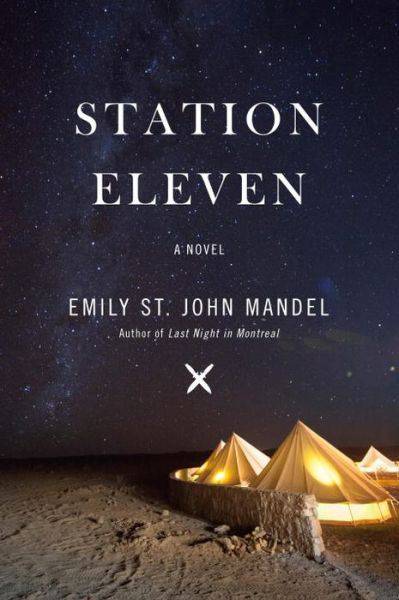
Station Eleven by Emily St. John Mandel
(Powells) One snowy night Arthur Leander, a famous actor, has a heart attack onstage during a production of King Lear. Jeevan Chaudhary, a paparazzo-turned-EMT, is in the audience and leaps to his aid. A child actress named Kirsten Raymonde watches in horror as Jeevan performs CPR, pumping Arthur’s chest as the curtain drops, but Arthur is dead. That same night, as Jeevan walks home from the theater, a terrible flu begins to spread. Hospitals are flooded and Jeevan and his brother barricade themselves inside an apartment, watching out the window as cars clog the highways, gunshots ring out, and life disintegrates around them.
(Powells) One snowy night Arthur Leander, a famous actor, has a heart attack onstage during a production of King Lear. Jeevan Chaudhary, a paparazzo-turned-EMT, is in the audience and leaps to his aid. A child actress named Kirsten Raymonde watches in horror as Jeevan performs CPR, pumping Arthur’s chest as the curtain drops, but Arthur is dead. That same night, as Jeevan walks home from the theater, a terrible flu begins to spread. Hospitals are flooded and Jeevan and his brother barricade themselves inside an apartment, watching out the window as cars clog the highways, gunshots ring out, and life disintegrates around them.
Fifteen years later, Kirsten is an actress with the
Traveling Symphony. Together, this small troupe moves between the settlements
of an altered world, performing Shakespeare and music for scattered communities
of survivors. Written on their caravan, and tattooed on Kirsten’s arm is a line
from Star Trek: “Because survival is insufficient.” But when they
arrive in St. Deborah by the Water, they encounter a violent prophet who digs
graves for anyone who dares to leave.
Spanning decades, moving back and forth in time, and vividly
depicting life before and after the pandemic, this suspenseful, elegiac
novel is rife with beauty. As Arthur falls in and out of love, as Jeevan
watches the newscasters say their final good-byes, and as Kirsten finds herself
caught in the crosshairs of the prophet, we see the strange twists of fate that
connect them all. A novel of art, memory, and ambition, Station
Eleven tells a story about the relationships that sustain us, the
ephemeral nature of fame, and the beauty of the world as we know it.
Jon, Avondale
Jon, Avondale
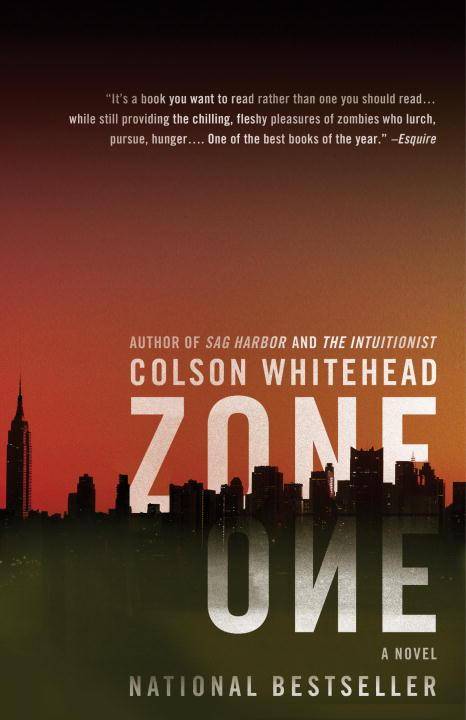
Zone One by Colson Whitehead
(Powells) In this wry take on the post-apocalyptic horror novel, a pandemic has devastated the planet. The plague has sorted humanity into two types: the uninfected and the infected, the living and the living dead.
(Powells) In this wry take on the post-apocalyptic horror novel, a pandemic has devastated the planet. The plague has sorted humanity into two types: the uninfected and the infected, the living and the living dead.
Now the plague is receding, and Americans are busy rebuilding
civilization under orders from the provisional government based in Buffalo.
Their top mission: the resettlement of Manhattan. Armed forces have
successfully reclaimed the island south of Canal Street — aka Zone One — but
pockets of plague-ridden squatters remain. While the army has eliminated the
most dangerous of the infected, teams of civilian volunteers are tasked with
clearing out a more innocuous variety — the “malfunctioning” stragglers, who
exist in a catatonic state, transfixed by their former lives.
Mark Spitz is a member of one of the civilian teams working
in lower Manhattan. Alternating between flashbacks of Spitz’s desperate fight
for survival during the worst of the outbreak and his present narrative, the
novel unfolds over three surreal days, as it depicts the mundane mission of
straggler removal, the rigors of Post-Apocalyptic Stress Disorder, and the
impossible job of coming to grips with the fallen world. And then things start
to go wrong. Both spine chilling and playfully cerebral, Zone One brilliantly
subverts the genre’s conventions and deconstructs the zombie myth for the
twenty-first century.
Jon, Avondale
Jon, Avondale

The Peripheral by William Gibson
(Powells) Where Flynne and her brother, Burton, live, jobs outside the drug business are rare. Fortunately, Burton has his veteran's benefits, for neural damage he suffered from implants during his time in the USMC's elite Haptic Recon force. Then one night Burton has to go out, but there's a job he’s supposed to do — a job Flynne didn't know he had. Beta-testing part of a new game, he tells her. The job seems to be simple: work a perimeter around the image of a tower building. Little buglike things turn up. He's supposed to get in their way, edge them back. That's all there is to it. He's offering Flynne a good price to take over for him. What she sees, though, isn't what Burton told her to expect. It might be a game, but it might also be murder.
Jon, Avondale
(Powells) Where Flynne and her brother, Burton, live, jobs outside the drug business are rare. Fortunately, Burton has his veteran's benefits, for neural damage he suffered from implants during his time in the USMC's elite Haptic Recon force. Then one night Burton has to go out, but there's a job he’s supposed to do — a job Flynne didn't know he had. Beta-testing part of a new game, he tells her. The job seems to be simple: work a perimeter around the image of a tower building. Little buglike things turn up. He's supposed to get in their way, edge them back. That's all there is to it. He's offering Flynne a good price to take over for him. What she sees, though, isn't what Burton told her to expect. It might be a game, but it might also be murder.
Jon, Avondale

Ocean at the End of the Lane by Neil Gaiman
(Powells) Sussex, England. A middle-aged man returns to his childhood home to attend a funeral. Although the house he lived in is long gone, he is drawn to the farm at the end of the road, where, when he was seven, he encountered a most remarkable girl, Lettie Hempstock, and her mother and grandmother. He hasn't thought of Lettie in decades, and yet as he sits by the pond (a pond that she'd claimed was an ocean) behind the ramshackle old farmhouse, the unremembered past comes flooding back. And it is a past too strange, too frightening, too dangerous to have happened to anyone, let alone a small boy.
(Powells) Sussex, England. A middle-aged man returns to his childhood home to attend a funeral. Although the house he lived in is long gone, he is drawn to the farm at the end of the road, where, when he was seven, he encountered a most remarkable girl, Lettie Hempstock, and her mother and grandmother. He hasn't thought of Lettie in decades, and yet as he sits by the pond (a pond that she'd claimed was an ocean) behind the ramshackle old farmhouse, the unremembered past comes flooding back. And it is a past too strange, too frightening, too dangerous to have happened to anyone, let alone a small boy.
Forty years earlier, a man committed suicide in a stolen car
at this farm at the end of the road. Like a fuse on a firework, his death lit a
touchpaper and resonated in unimaginable ways. The darkness was unleashed,
something scary and thoroughly incomprehensible to a little boy. And Lettie —
magical, comforting, wise beyond her years — promised to protect him, no matter
what.
A groundbreaking work from a master, The Ocean at the
End of the Lane is told with a rare understanding of all that makes us
human, and shows the power of stories to reveal and shelter us from the
darkness inside and out. It is a stirring, terrifying, and elegiac fable as
delicate as a butterfly's wing and as menacing as a knife in the dark.
Samuel, Five Points West
Samuel, Five Points West



Annotated works of Jane Austen, ed by David Shapard
These first-ever fully annotated editions of the most beloved novels in the world are a sheer delight for Jane Austen fans. Here is the complete text of Pride and Prejudice, Sense and Sensibility, and Persuasion with more than 2,300 annotations on facing pages, including:
These first-ever fully annotated editions of the most beloved novels in the world are a sheer delight for Jane Austen fans. Here is the complete text of Pride and Prejudice, Sense and Sensibility, and Persuasion with more than 2,300 annotations on facing pages, including:
• Explanations of historical context
Rules of etiquette, class differences, the position of
women, legal and economic realities, leisure activities, and more.
• Citations from Austen’s life, letters, and
other writings
Parallels between the novel and Austen’s experience are
revealed, along with writings that illuminate her beliefs and opinions.
• Definitions and clarifications
Archaic words, words still in use whose meanings have
changed, and obscure passages are explained.
• Literary comments and analyses
Insightful notes highlight Austen’s artistry and point out
the subtle ways she develops her characters and themes.
• Maps and illustrations of places and objects mentioned in the novel.
• An introduction, a bibliography, and a detailed
chronology of events
Of course, one can enjoy the novel without knowing
the precise definition of a gentleman, or what it signifies that a character drives
a coach rather than a hack chaise, or the rules governing social interaction at
a ball, but readers of Jane Austen will find that these kinds of
details add immeasurably to understanding and enjoying the intricate
psychological interplay of Austen’s immortal characters.
Samuel, Five Points West
Samuel, Five Points West
Decision at Doona by Anne McCaffrey
(Powells) After the first human contact with the Siwannese ended in a mass suicide, the Terran government made a law that no further contact with sentient aliens would be allowed. But since their own planet was overcrowed, they looked to colonize Doona--until they found the Hrubbans. Their choice was simple but dangerous. They could kill the cat-like Hrubbans, or for the first time in history, learn to to coexist with an alien race....
Samuel, Five Points West
(Powells) After the first human contact with the Siwannese ended in a mass suicide, the Terran government made a law that no further contact with sentient aliens would be allowed. But since their own planet was overcrowed, they looked to colonize Doona--until they found the Hrubbans. Their choice was simple but dangerous. They could kill the cat-like Hrubbans, or for the first time in history, learn to to coexist with an alien race....
Samuel, Five Points West

Doona: Crisis on Doona & Treaty at Doona by Anne
McCaffrey
(Powells) Crisis on Doona & Treaty at Doona, two previously published works, are collected here together in one volume. Synopsis: Over twenty-five years ago, the first humans came to the unspoiled planet of Doona. They ignored one important fact: They were not alone. Doona was the home of the cat-like alien race of Hrrubans. And so began an experiment in cohabitation that lasted for a quarter of a century. Their contract is now up for renewal. Now, their delicate alliance is threatened by new alien visitors offering friendship. But not everyone believes in their motives. And as a battle of diplomatic unrest ensues, Doona once again falls under the dark shadow of uncertainty and self-destruction.
Samuel, Five Points West
(Powells) Crisis on Doona & Treaty at Doona, two previously published works, are collected here together in one volume. Synopsis: Over twenty-five years ago, the first humans came to the unspoiled planet of Doona. They ignored one important fact: They were not alone. Doona was the home of the cat-like alien race of Hrrubans. And so began an experiment in cohabitation that lasted for a quarter of a century. Their contract is now up for renewal. Now, their delicate alliance is threatened by new alien visitors offering friendship. But not everyone believes in their motives. And as a battle of diplomatic unrest ensues, Doona once again falls under the dark shadow of uncertainty and self-destruction.
Samuel, Five Points West

Vintage Science Fiction ed by Peter Haining
(Powells) From the cerebral 2001 to the B-grade It Came From Outer Space — both of which are from stories by Arthur C. Clarke and Ray Bradbury, respectively, and are collected here — sci-fi films have always drawn from the printed word. In addition to tales by Isaac Asimov, Philip K. Dick, Stephen King, and Clive Barker, several stories appear in book form for the first time, such as James Blish's Star Trek scenario, while others such as Werner von Braun's The Conquest of Space, are out of print or hard to find.
Samuel, Five Points West
(Powells) From the cerebral 2001 to the B-grade It Came From Outer Space — both of which are from stories by Arthur C. Clarke and Ray Bradbury, respectively, and are collected here — sci-fi films have always drawn from the printed word. In addition to tales by Isaac Asimov, Philip K. Dick, Stephen King, and Clive Barker, several stories appear in book form for the first time, such as James Blish's Star Trek scenario, while others such as Werner von Braun's The Conquest of Space, are out of print or hard to find.
Samuel, Five Points West

Rosemary’s Baby by Ira Levin
(Powells) Rosemary Woodhouse and her struggling actor husband Guy move into the Bramford, an old New York City apartment building with an ominous reputation and mostly elderly residents. Neighbors Roman and Minnie Castavet soon come nosing around to welcome the Woodhouses to the building, and despite Rosemary's reservations about their eccentricity and the weird noises that she keeps hearing, her husband takes a special shine to them. Shortly after Guy lands a plum Broadway role, Rosemary becomes pregnant, and the Castavets start taking a special interest in her welfare. As the sickened Rosemary becomes increasingly isolated, she begins to suspect that the Castavets' circle is not what it seems...
Samuel, Five Points West
(Powells) Rosemary Woodhouse and her struggling actor husband Guy move into the Bramford, an old New York City apartment building with an ominous reputation and mostly elderly residents. Neighbors Roman and Minnie Castavet soon come nosing around to welcome the Woodhouses to the building, and despite Rosemary's reservations about their eccentricity and the weird noises that she keeps hearing, her husband takes a special shine to them. Shortly after Guy lands a plum Broadway role, Rosemary becomes pregnant, and the Castavets start taking a special interest in her welfare. As the sickened Rosemary becomes increasingly isolated, she begins to suspect that the Castavets' circle is not what it seems...
Samuel, Five Points West

Rosemary’s Baby, feature film
(Rotten Tomatoes) In Roman Polanski's first American film, adapted from Ira Levin's horror bestseller, a young wife comes to believe that her offspring is not of this world. Waifish Rosemary Woodhouse (Mia Farrow) and her struggling actor husband, Guy (John Cassavetes), move into the Bramford, an old New York City apartment building with an ominous reputation and only elderly residents. Neighbors Roman and Minnie Castevet (Sidney Blackmer and Ruth Gordon) soon come nosing around to welcome the Woodhouses to the building; despite Rosemary's reservations about their eccentricity and the weird noises that she keeps hearing, Guy starts spending time with the Castevets.
(Rotten Tomatoes) In Roman Polanski's first American film, adapted from Ira Levin's horror bestseller, a young wife comes to believe that her offspring is not of this world. Waifish Rosemary Woodhouse (Mia Farrow) and her struggling actor husband, Guy (John Cassavetes), move into the Bramford, an old New York City apartment building with an ominous reputation and only elderly residents. Neighbors Roman and Minnie Castevet (Sidney Blackmer and Ruth Gordon) soon come nosing around to welcome the Woodhouses to the building; despite Rosemary's reservations about their eccentricity and the weird noises that she keeps hearing, Guy starts spending time with the Castevets.
Shortly after Guy
lands a plum Broadway role, Minnie starts showing up with homemade chocolate
mousse for Rosemary. When Rosemary becomes pregnant after a mousse-provoked
nightmare of being raped by a beast, the Castevets take a special interest in
her welfare. As the sickened Rosemary becomes increasingly isolated, she begins
to suspect that the Castevets' circle is not what it seems. The diabolical
truth is revealed only after Rosemary gives birth, and the baby is taken away
from her. Polanski's camerawork and Richard Sylbert's production design
transform the realistic setting (shot on-location in Manhattan's Dakota
apartment building) into a sinister projection of Rosemary's fears, chillingly
locating supernatural horror in the familiar by leaving the most grotesque
frights to the viewer's imagination.
This apocalyptic yet darkly comic paranoia
about the hallowed institution of childbirth touched a nerve with late-'60s
audiences feeling uneasy about traditional norms. Produced by B-horror maestro William Castle, Rosemary's Baby became a critically praised hit, winning Gordon
an Oscar for Best Supporting Actress. Inspiring a wave of satanic horror from
The Exorcist (1973) to The Omen (1976), Rosemary's Baby helped usher in the
genre's modern era by combining a supernatural story with Alfred Hitchcock's
propensity for finding normality horrific. ~ Lucia Bozzola, Rovi
Samuel, Five Points West
Samuel, Five Points West

Cabal by Clive Barker
(Publisher’s Weekly) Comprised of a novel and four long stories, this volume is classic Barker, full of lurid, bloody imagery and action involving large-than-life characters. It's great fun and provides plenty of thrills or giggles, depending on how seriously you take it. In the novel, Cabal , Boone, a recovering psychotic, is cleverly manipulated by his psychiatrist, Decker, into believing that he has committed several savage murders. Decker, of course, is the villain, but Boone does not catch on. Considering himself unfit for human society, Boone flees, eventually to come upon Midian, a large crypt inhabited by the Nightbreed, dead souls in shape-changing bodies, neither good nor evil, who turn Boone into one of their own. Of the shorter works, the best written is "The Life of Death," about a woman who becomes enthralled by death and is transformed into a kind of Typhoid Mary. Another, "The Last Illusion," which concerns the fate of a magician's corpse, is full of intriguing moments.
Samuel, Five Points West
(Publisher’s Weekly) Comprised of a novel and four long stories, this volume is classic Barker, full of lurid, bloody imagery and action involving large-than-life characters. It's great fun and provides plenty of thrills or giggles, depending on how seriously you take it. In the novel, Cabal , Boone, a recovering psychotic, is cleverly manipulated by his psychiatrist, Decker, into believing that he has committed several savage murders. Decker, of course, is the villain, but Boone does not catch on. Considering himself unfit for human society, Boone flees, eventually to come upon Midian, a large crypt inhabited by the Nightbreed, dead souls in shape-changing bodies, neither good nor evil, who turn Boone into one of their own. Of the shorter works, the best written is "The Life of Death," about a woman who becomes enthralled by death and is transformed into a kind of Typhoid Mary. Another, "The Last Illusion," which concerns the fate of a magician's corpse, is full of intriguing moments.
Samuel, Five Points West
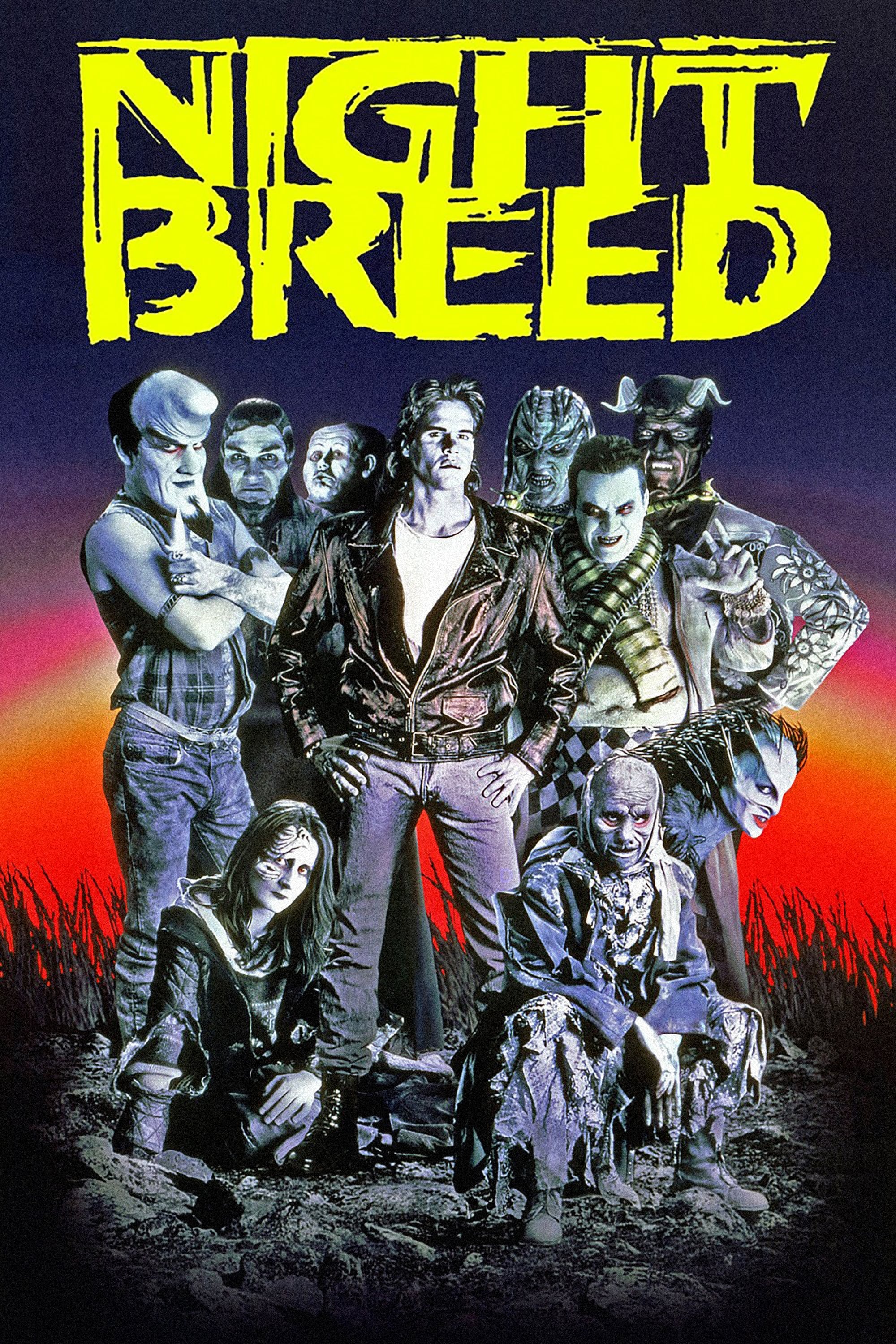
Nightbreed, feature film adapted from Clive Barker’s Cabal
(Rotten Tomatoes) Multimedia horror maven Clive Barker followed the success of his feature directorial debut, Hellraiser, with this equally surreal effort, based on his novella Cabal. The story involves the plight of Aaron Boone (Craig Sheffer), a young man tormented by visions of monstrous, graveyard-dwelling creatures. Seeking the aid of his clinically cold therapist Dr. Decker (played by Canadian horror auteur David Cronenberg) in deciphering his nightmares, Boone becomes convinced that his frequent blackouts are linked to a recent spate of mutilation murders in the area. His frantic search for the truth leads him to the subterranean city of Midian, the dwelling place of a mythical race of undead nocturnal monsters known as the "Nightbreed." But it is only after he is cornered and shot dead by police that Boone's real journey begins -- he finds himself resurrected as one of the Breed. Though Barker's unique and graphic vision is somewhat blunted by choppy editing (thanks to relentless tampering from the studio), this is nevertheless a fine sophomore project from a talented storyteller; the central conceit of presenting the monsters as the "good guys" -- at least compared to the gun-and-bible-toting lunatics who hunt them -- is handled with verve and originality. ~ Cavett Binion, Rovi
Samuel, Five Points West
(Rotten Tomatoes) Multimedia horror maven Clive Barker followed the success of his feature directorial debut, Hellraiser, with this equally surreal effort, based on his novella Cabal. The story involves the plight of Aaron Boone (Craig Sheffer), a young man tormented by visions of monstrous, graveyard-dwelling creatures. Seeking the aid of his clinically cold therapist Dr. Decker (played by Canadian horror auteur David Cronenberg) in deciphering his nightmares, Boone becomes convinced that his frequent blackouts are linked to a recent spate of mutilation murders in the area. His frantic search for the truth leads him to the subterranean city of Midian, the dwelling place of a mythical race of undead nocturnal monsters known as the "Nightbreed." But it is only after he is cornered and shot dead by police that Boone's real journey begins -- he finds himself resurrected as one of the Breed. Though Barker's unique and graphic vision is somewhat blunted by choppy editing (thanks to relentless tampering from the studio), this is nevertheless a fine sophomore project from a talented storyteller; the central conceit of presenting the monsters as the "good guys" -- at least compared to the gun-and-bible-toting lunatics who hunt them -- is handled with verve and originality. ~ Cavett Binion, Rovi
Samuel, Five Points West

Books of Blood by Clive Barker
(Powells) With the 1984 publication of Books of Blood,
Clive Barker became an overnight literary sensation. He was hailed by Stephen
King as "the future of horror," and won both the British and World
Fantasy Awards. Now, with his numerous bestsellers, graphic novels, and hit
movies like the Hellraiser films, Clive Barker has become an industry
unto himself. But it all started here, with this tour de force collection that
rivals the dark masterpieces of Edgar Allan Poe. Read him. And rediscover the
true meaning of fear.
Samuel, Five Points West
Samuel, Five Points West

Book of Blood, feature film
(Rotten Tomatoes) A paranormal expert investigating a brutal murder discovers a house that stands at the intersection of several supernatural "highways" designed to transport souls to the afterlife in this adaptation of an original story by horror icon Clive Barker.
Samuel, Five Points West
(Rotten Tomatoes) A paranormal expert investigating a brutal murder discovers a house that stands at the intersection of several supernatural "highways" designed to transport souls to the afterlife in this adaptation of an original story by horror icon Clive Barker.
Samuel, Five Points West
What are YOU reading?




